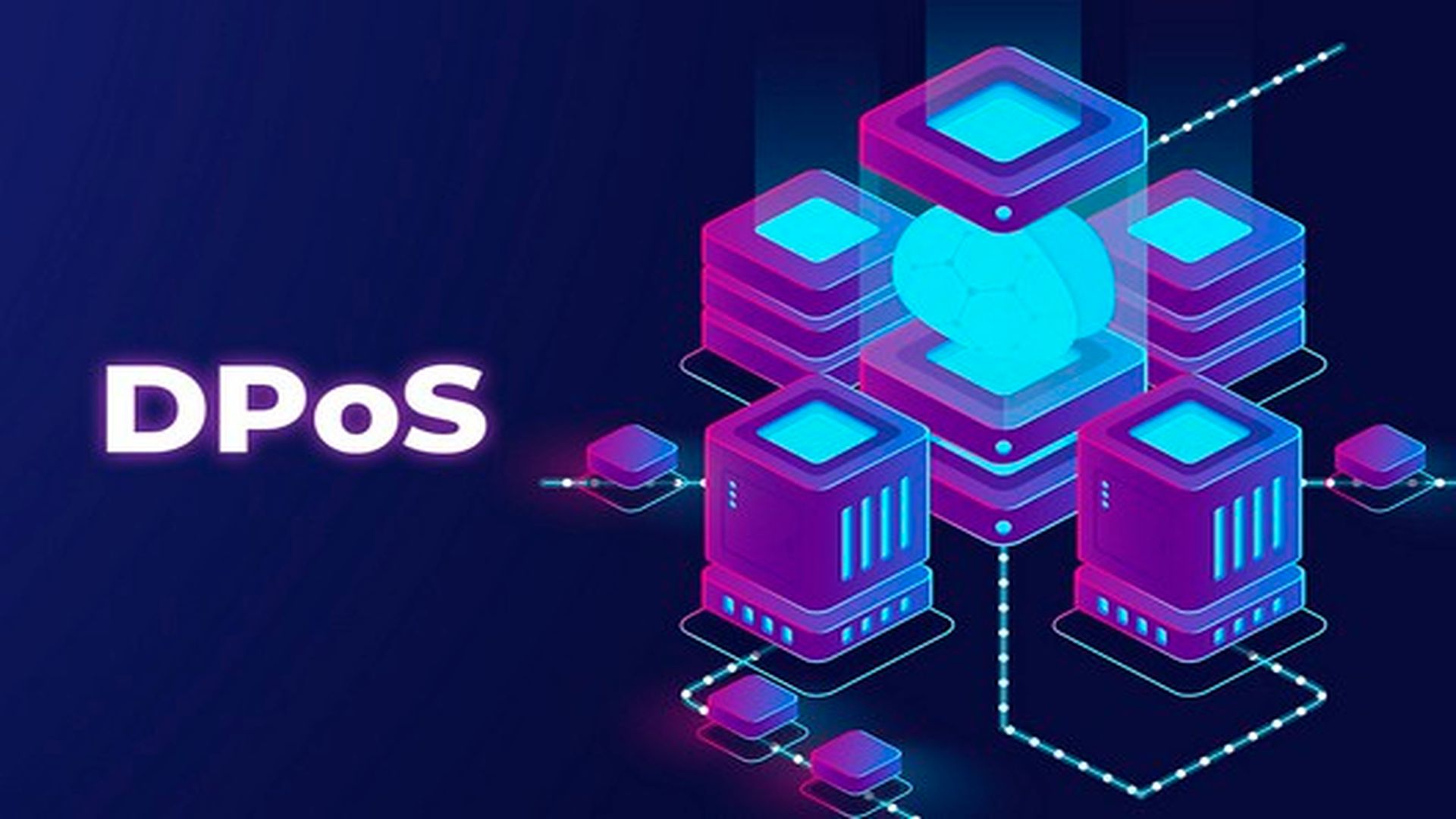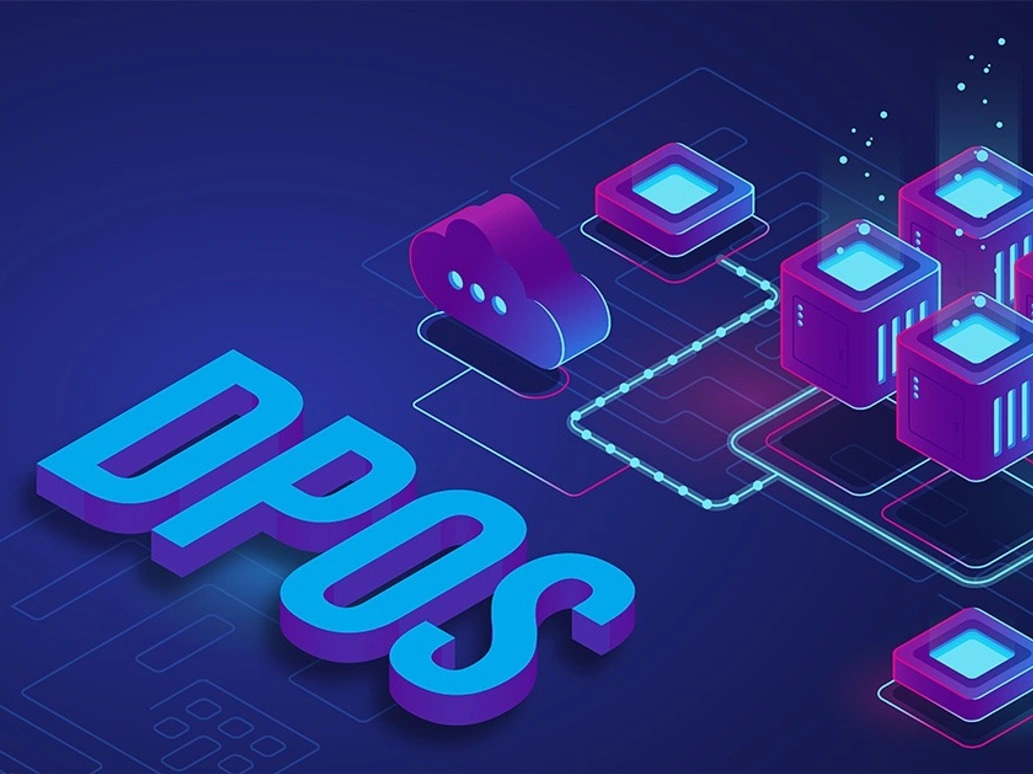DPoS is an evolution of the proof-of-stake (PoS) consensus mechanism, ideally designed to increase efficiency, scalability, and democratic governance.
Blockchain technology has changed how we see and handle digital transactions, mainly via its consensus mechanisms and decentralized nature. The main aim of these decentralized mechanisms is to guarantee no centralized gatekeeping in managing a blockchain’s record of transactions and data. Instead, the consensus mechanisms rely on network participants to validate transactions and add them as new blocks on the chain.
Among the different consensus algorithms, one such mechanism that has gained popularity is delegated proof-of-stake. DPoS is described as an example of the classic proof-of-stake consensus mechanism.
Daniel Larimer launched the DPoS concept in 2014 to boost the traditional PoS consensus mechanism, aiming to enhance scalability and efficiency. Interestingly, Larimer first shared his vision in a Bitcointalk forum post, which resulted in the practical implementation of DPoS with the introduction of BitShares in 2015.
It marked the start of DPoS in blockchain technology, setting the stage for its adoption in other projects like Eos and Steem. Eos, specifically, brought increased attention to DPoS by leveraging the consensus mechanism to conduct one of the biggest initial coin offerings (ICOs) in the crypto space in 2017, highlighting the possibility of DPoS achieving high performance and decentralized governance.
How Is DPoS Different From Earlier Consensus Mechanisms Like PoS?
DPoS differs from the traditional PoS by utilizing a voting structure to elect delegates for block validation, making the process highly scalable and democratic.
The key to understanding all consensus mechanisms lies in how consensus is finally reached. While the Bitcoin blockchain launched the first mechanism to reach an agreement on blockchain through proof-of-work (PoW), there are several other ways for blockchain networks to reach a consensus.
PoS was launched in an academic paper in 2012. It is written by Sunny King and Scott Nadal as a new consensus mechanism to resolve the problem of Bitcoin mining’s high energy consumption.
PoS is among the most common consensus mechanisms, and the Ethereum network adopted it in 2022. Slowly, other secure iterations of PoS began coming up, including hybrid PoS-PoW, pure PoS, and delegated PoS.
In a DPoS system, network users vote to delegate the block validation rights to a few witnesses or block producers. The democratic process strives to address some limitations of the normal PoS algorithm by guaranteeing that the power to authenticate transactions is distributed among elected representatives instead of being concentrated in the hands of several wealthy stakeholders.
This means that, unlike the traditional PoS, where the stakeholders authenticate transactions directly, DPoS lets token holders elect delegates responsible for validating blocks.
With that in mind, DPoS streamlines the block validation process, resulting in quicker transaction confirmation times. The limited number of elected delegates also boosts the scalability of the network.
How DPoS operates
The core mechanism of DPoS revolves around delegation, voting, and validation.
DPoS boosts the traditional PoS network by integrating an election mechanism where the participants vote to elect delegates responsible for validating and creating blocks. The process features four major participants: voters, witnesses/block producers, delegates, and validators.
Voters
In a DPoS network, each network participant holding even the smallest amount of the native token can become a voter, with no set minimum stakeholder token requirement to participate. Voters play an integral role in the network’s governance by choosing witnesses and delegates and participating in decision-making processes via governance proposals. Voting power is directly proportional to the amount of tokens held, which means the users with more tokens enjoy greater influence.
Voters can decide to cast their votes or delegate their voting rights to other users. Their key responsibility is to choose witnesses or block producers, since these entities are primarily involved in the block production process. Thus, voters get incentivized to go for trustworthy and competent candidates to guarantee the network’s smooth operation and security.
Witnesses (Block Producers)
Witnesses, also called block producers, are the nodes elected by the tokenholders to validate various transactions and develop new blocks. These entities are integral to the operation of the blockchain, since they guarantee the integrity and accuracy of transaction data. Upon validating all the transactions in a block, witnesses get block rewards, normally shared with the voters who supported them.
In case a witness does not validate transactions within the set time, they miss the block and forfeit their reward. The missed reward is normally passed on to the next witness, who manages to validate the block. The system incentivizes witnesses and voters to act honestly: voters then aim to elect reliable witnesses to increase their rewards, while witnesses aim to maintain their integrity and reputation to attract the votes.
Delegates
Voters elect delegates to oversee governance functions in DPoS. Unlike the witnesses, who focus on block production, delegates are responsible for proposing improvements and changes to the network. The proposals can range from modifying block sizes to adjusting block rewards.
After a delegate puts forth a proposal, it needs to be voted on by the network participants before it gets implemented. Notably, the delegates have no authority to apply any changes directly to the network; their role is to facilitate and suggest enhancements that are then subject to community approval. The separation of duties assists in the maintenance of a balanced and decentralized governance network.
Validators
Validators are full nodes that determine whether the blocks developed by witnesses adhere to all the consensus rules. Unlike the witnesses, any user can easily become a validator, and there is no direct financial incentive to perform the role. Validators play an integral role in maintaining the integrity of the blockchain by guaranteeing that all blocks comply with the established protocols and rules.









